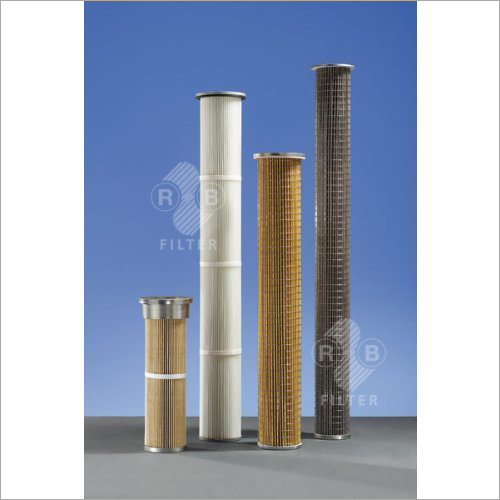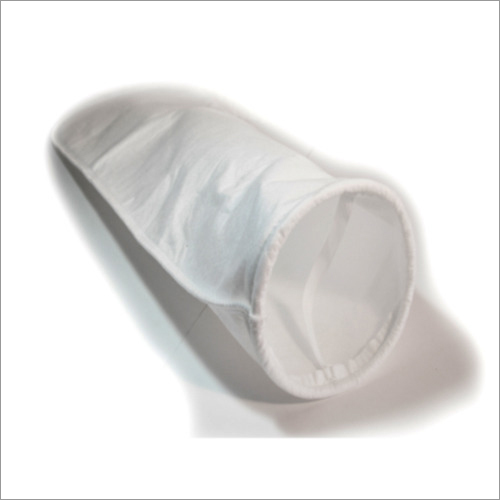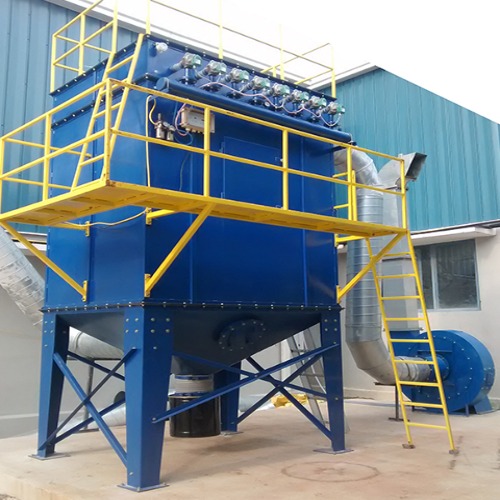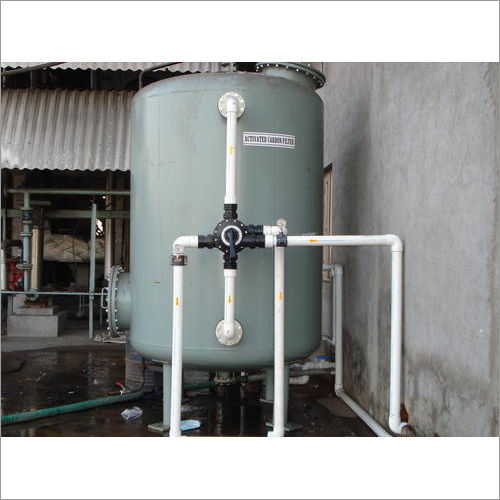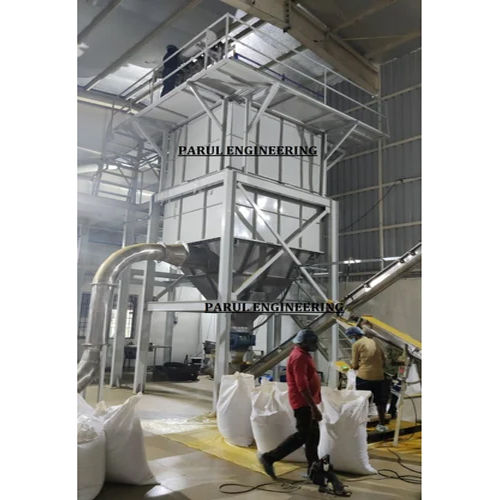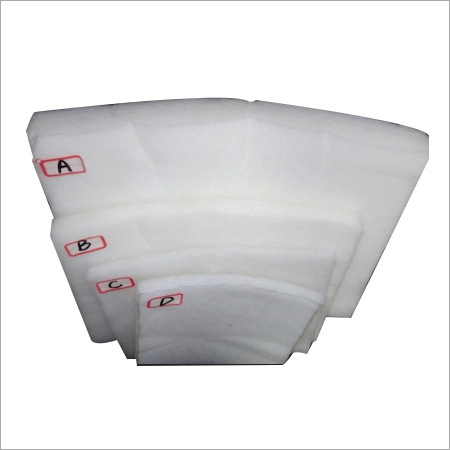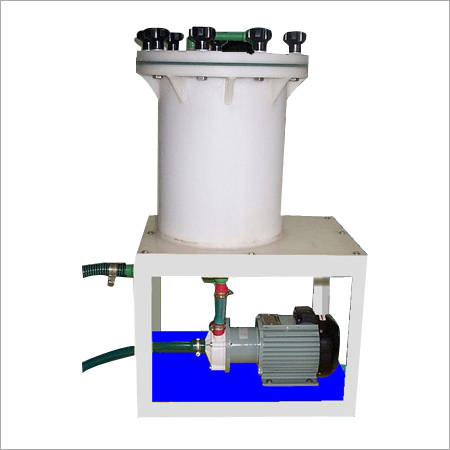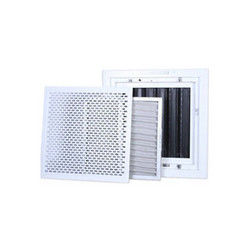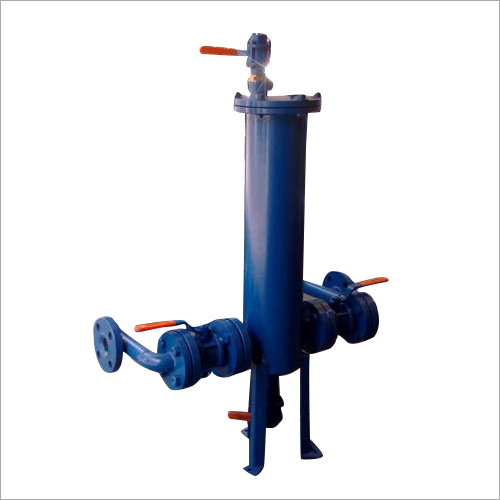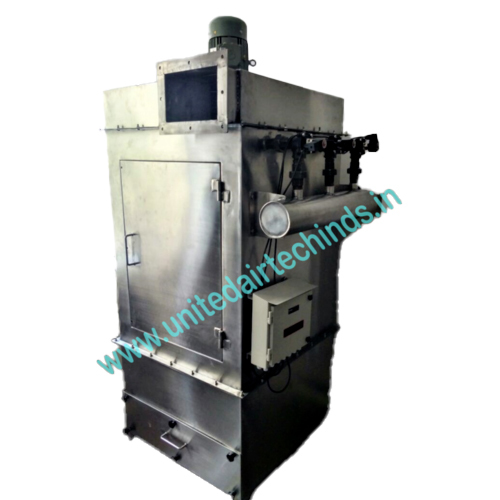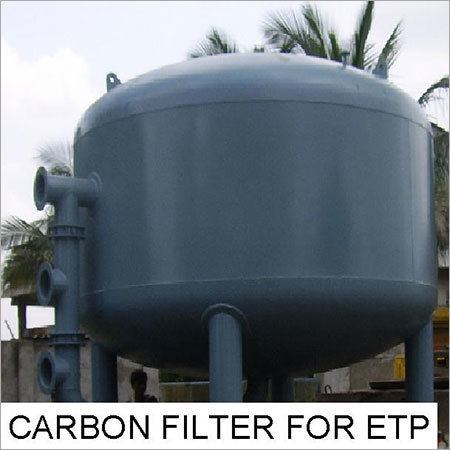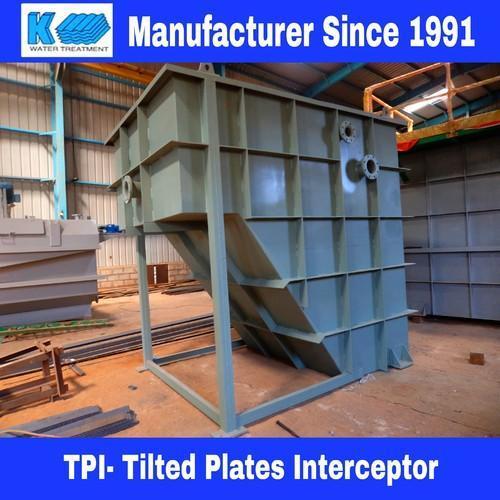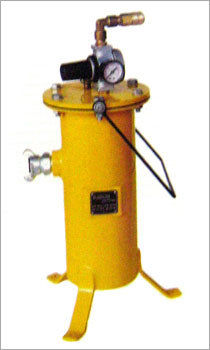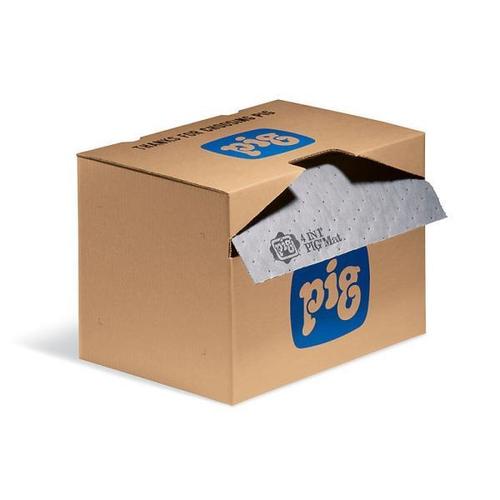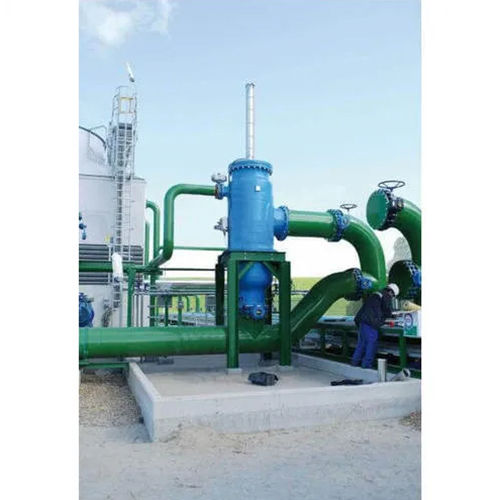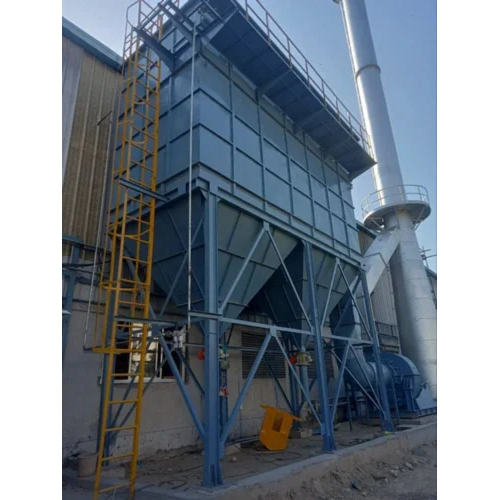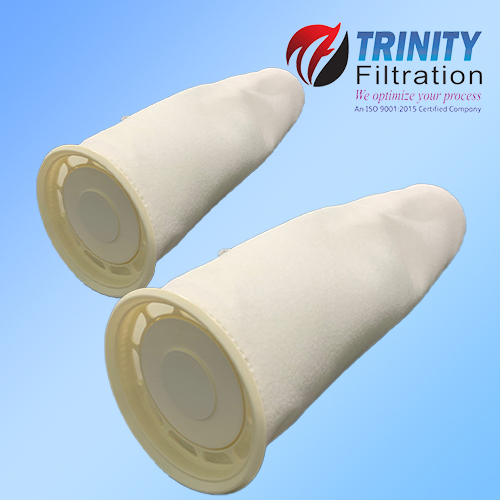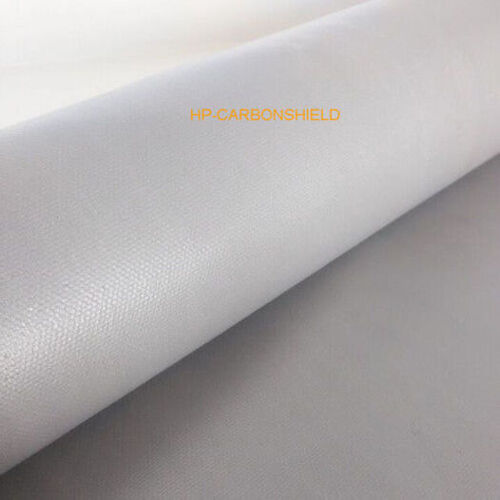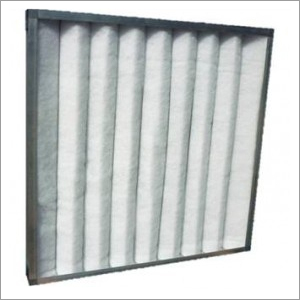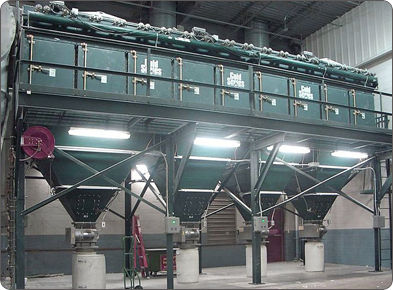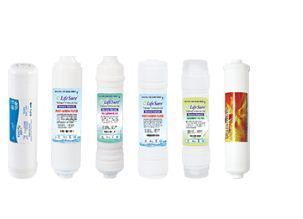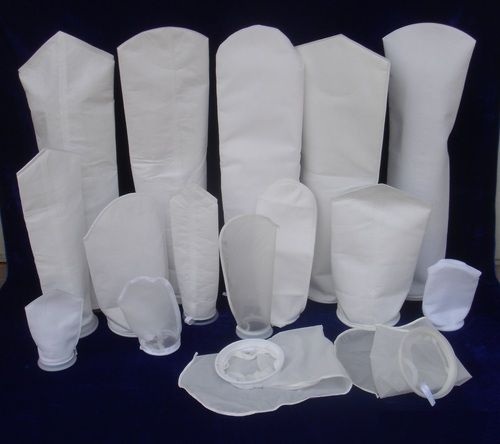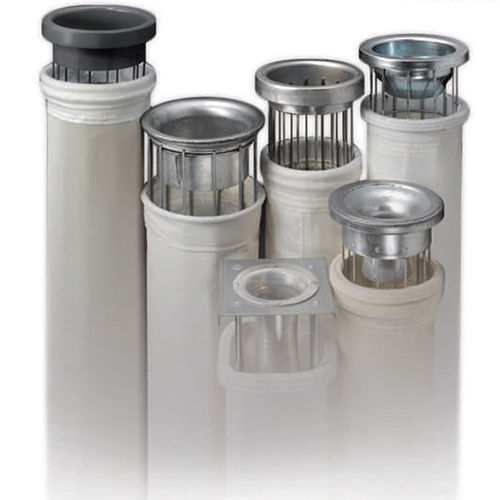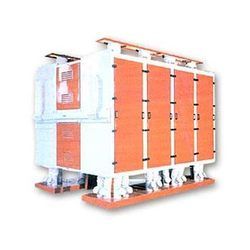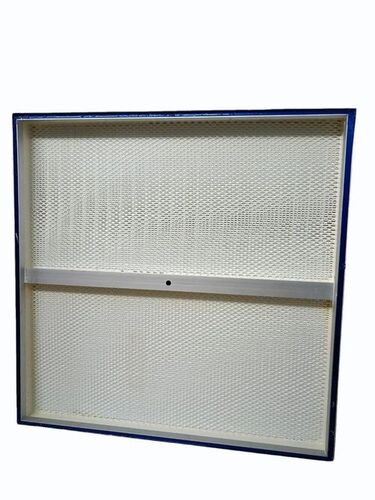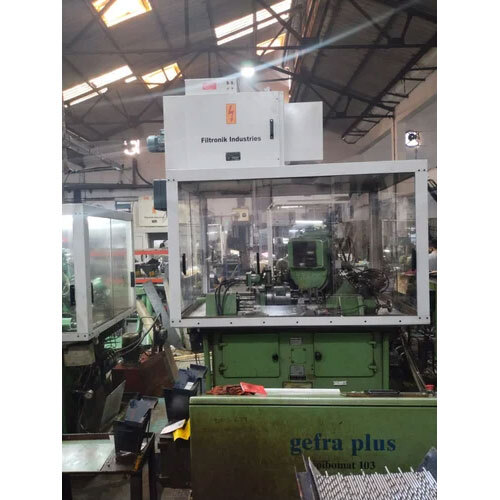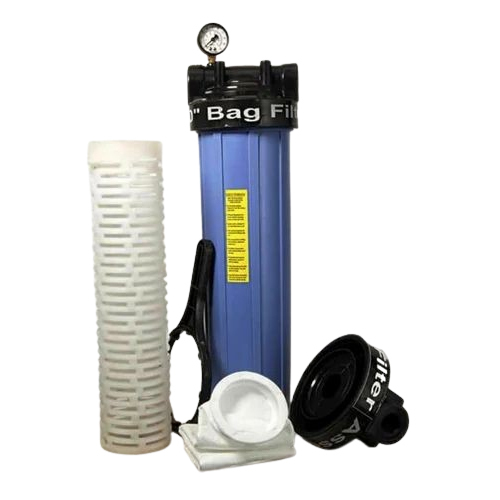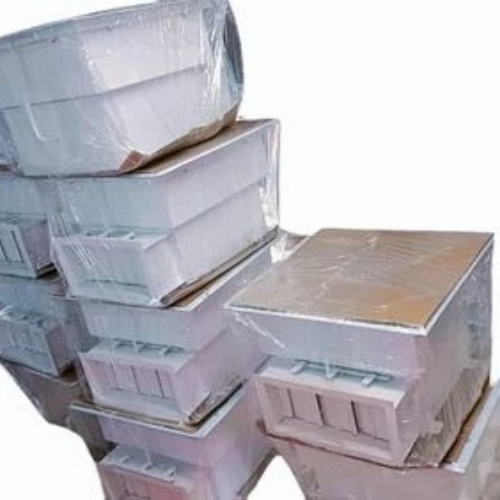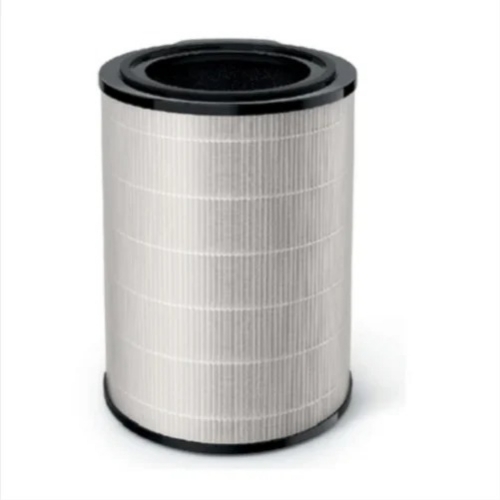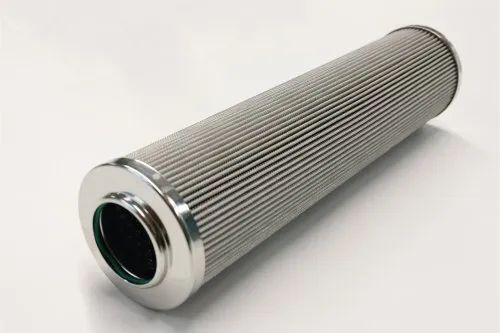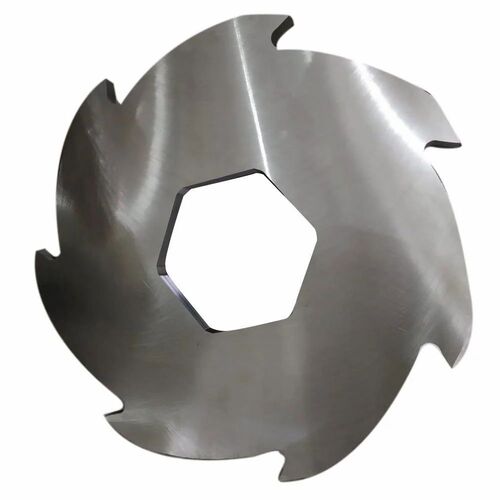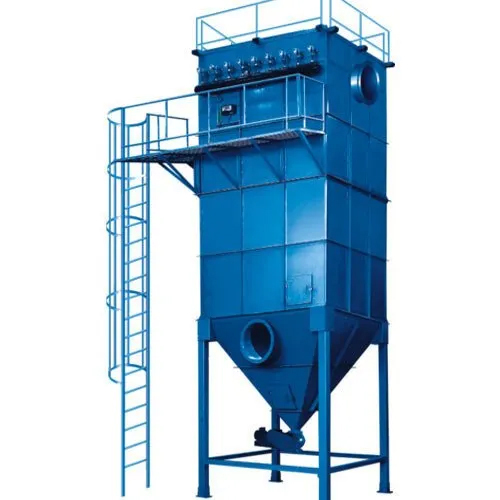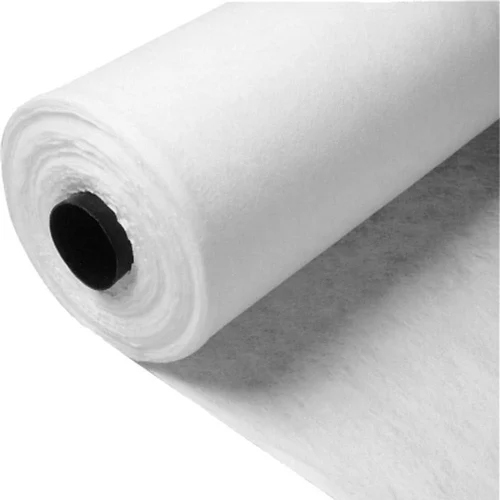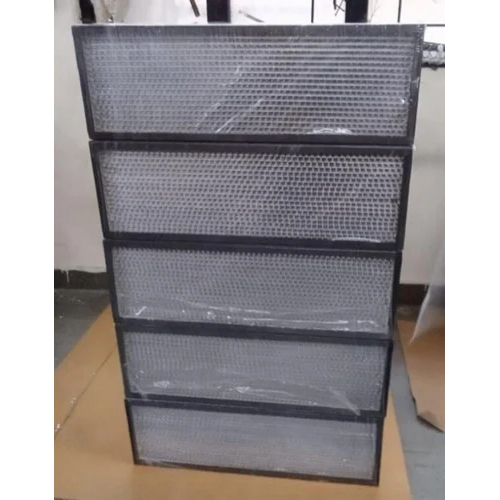Filter Cloth, Filter Industrial
(4950 products)Pleated Filter Bag Application: Dust Control
Price Trend: 5000.00 - 10000.00 INR/Piece
MOQ5 Piece/Pieces
SizeAs per customer requirement
Efficiency (%)99.9%
UsageFor Pollution control
ColorBlack, white and Yellow
Product TypePleated Dilter
Weight2-5 Kilograms (kg)
R+b Filter Manufacturing Enterprises Pvt. Ltd.
Vadodara
15 Years
 Super Premium
Super PremiumBag Filter - Application: Industrial
Price: 200 INR/Piece
MOQ10 Piece/Pieces,
ColorWhite
UsageWater Purification
Product TypeBag Filter
SizeSizes Available
MaterialPP
ApplicationIndustrial
Angel Chemicals Private Limited
Vadodara
11 Years
 Super Premium
Super PremiumTrickling Filter And SAFF Media
MOQ100 Cubic Meter/Cubic Meters
FOB PortMumbai
Payment TermsLetter of Credit (L/C), Cheque
Delivery Time1 Months
Cooldeck Industries Pvt. Ltd.
Mumbai
7 Years
 Super Premium
Super PremiumPulse Jet Bag Filter - Material: Metal
Price: 400000 INR/Piece
MOQ1 Piece/Pieces
UsageIndustrial
SizeDifferent Available
Product TypePulse Jet Bag Filter
MaterialMetal
ApplicationIndustrial Filter
Parth Engineers
Ahmedabad
3 Years
 Super Premium
Super PremiumGray Industrial Dual Media Filter
Price: 80000 INR/Unit
MOQ1 Unit/Units
Product TypeDual Media Filter
ColorGray
MaterialStainless Steel
ApplicationIndustrial, Chemical Industry, Domestic Industry
Inhibeo Water Solution & Technologies Pvt. Ltd.
Indore
5 Years
Bag Filter System - Other Material, Grey Color | Food Industry Usage
Price: 200000 INR/Piece
MOQ1 Piece/Pieces
Product TypeBag Filter System
ColorGrey
UsageFood Industry
MaterialOther
Parul Engineering Private Limited
Pune
3 Years
 Super Premium
Super PremiumLow Density Filter Media - 100% Polyester, Breaded Density | High Strength, Dimensional Accuracy, Durable Finish Standards, White Color, Ideal for Clean Room Filtration
Price Trend: 1000.00 - 10000.00 INR/Unit
MOQ1 Unit/Units
ColorWhite
Product TypeSuction Air Filter Media
UsageIndustrial
Tfi Filtration (india) Pvt. Ltd.
Ahmedabad
17 Years
Electroplating Chemical Filter
Price: 22000 INR/Piece
MOQ1 Piece/Pieces
Payment TermsTelegraphic Transfer (T/T), Others, Cheque
Sample AvailableYes
Sample PolicyContact us for information regarding our sample policy
Fine Rhodium
Mumbai
16 Years
Combination Grilles With Filter Frame - Superior Quality Materials , Enhanced Performance Design
Product DescriptionWe bring forth for our clients superior quality Combination Grilles With Filter Frame. While manufacturing these Combination Grilles With Filter Frame, we take extra care of quality so our clients get best product. Our clients can avail from us these products at most competitive rates.\015\012
Revlon Industries
Ahmedabad
16 Years
 Super Premium
Super PremiumFoam Filter - Premium Quality Material, Cutting Edge Technology - Manufactured by Skilled Professionals
Payment TermsPaypal, Western Union, Telegraphic Transfer (T/T), Others
Delivery Time1 Week
Sample PolicyContact us for information regarding our sample policy
Shraddha Filter Technology
Ahmedabad
6 Years
Industrial Liquid Filter - Premium Stainless Steel, Efficient Multi-Layer Filtration for Optimal Performance
Price Trend: 15000.00 - 50000.00 INR/Piece
MOQ1 Piece/Pieces
Supply Ability50 Per Month
Delivery Time1 Week
Gts Filters And Systems (india) Private Limited
Vadodara
7 Years
Reverse Pulsejet Bag Filter System - Color: As Per Customer
Price: 45000 INR/Unit
MOQ1 Unit/Units
ColorAS PER CUSTOMER
Power SourceElectricity
Warranty1 YEAR
United Air Tech Industries
Mumbai
17 Years
Carbon Filter For Etp - Application: Industrial
Price: 100000 INR/Unit
MOQ1 Unit/Units
ColorGrey
Product TypeCarbon Filter For ETP
MaterialStainless Steel
ApplicationIndustrial
Sunrise Process Equipments Private Limited
Mumbai
22 Years
Titled Plate Interceptor - Application: For Effluent Waste Water
Price: 425000 INR/Piece
MOQ1 Piece/Pieces
Product TypeTitled Plate Interceptor (TPI)
UsageWater treatment for First Stage
ColorBiue
ApplicationFor Effluent Waste Water
K-pack Systems Private Limited
Bengaluru
15 Years
AIRLINE FILTERS
Product DescriptionThe Airline Filter is designed to remove oil mist, water vapor and particulates down to 0.5 microns from breathing grade compressed air. Once the air has been filtered, moisture is removed and drained through a drain valve located at the bottom of the airline filter
Atlantic Maritime Services Pvt. Ltd.
Mumbai
8 Years
Grp Auto Self Cleaning Filters - Material: Stainless Steel
Price: 200000 INR/Unit
MOQ1 Unit/Units
UsageIndustrial
Product TypeSelf Cleaning Filters
SizeStandard
MaterialStainless Steel
Shalin Composites (india) Private Limited
Palghar
5 Years
 Super Premium
Super PremiumPulse Jet Bag Filter - Stainless Steel, Standard Size, Blue Color | Industrial Application, Durable Design
Price: 450000 INR/Piece
MOQ1 Piece/Pieces
ColorBlue
Product TypePulse Jet Bag Filter
SizeStandard
UsageIndustrial
MaterialStainless Steel
ApplicationIndustrial
Ambica Boiler
Ahmedabad
9 Years
Dual Flow Bag Filters
Price: 360.00 INR/Unit
MOQ10 Unit/Units
Supply Ability5000 Per Month
Delivery Time30 Days
Trinity Filtration Technologies Pvt. Ltd.
Thane
13 Years
Automatic Filter - Fully Automatic Design, Self-Cleaning Mechanism, Yellow Finish, Low Maintenance Costs, High Flow Rate Up to 8000 m3/h, No Lubrication Required
Price Trend: 80000.00 - 350000.00 INR/Piece
MOQ1 , Piece/Pieces
Product TypeAutomatic Filters, Other
TypeMachine Oil Filter
AutomationAutomatic
ColorYellow
WarrantyYes
Shalin Composites (india) Private Limited
Vasai
15 Years
Pvc Coated Fiberglass Cloth With Fire Retardant - Application: For Industrial
Price: 350 INR/Square Meter
MOQ1 Square Meter/Square Meters
TypeFilter Felt
MaterialPolypropylene
ApplicationFor Industrial
Hemnil Protection
Mumbai
13 Years
Non Woven Filter Bags Application: Edible Oil Filtration In Major Stages In Refineries
Size4 x 20 Inch
Product TypeNon Woven Filter Bags
TypeNon-Woven Filter
MaterialNon Woven, Other
ApplicationEdible Oil Filtration in Major stages in Refineries, Particle filtration for Paint Solid, and Liquid Filtration
Andisc Engineers Private Limited
Kolkata
15 Years
Hvac Pre Filter - Shape: Square
Price Trend: 1000.00 - 10000.00 INR/Piece
MOQ10 Piece/Pieces
Product TypeHVAC PRE Filter
UsageIndustrial
ConditionNew
ShapeSquare
United Filters Industries Pvt Ltd.
Pune
11 Years
Bag Filters - Special Fiber Fabric, Versatile Sizes for Various Processes | Enhanced Dust Removal, Durable Design, Easy Maintenance Features
Product DescriptionWe are involved in offering fine quality Bag Filters which are large fabric bags, usually made of special fibers, used to eliminate intermediate and large particles greater than 20 microns in diameter). It operates like the bag of an electric vacuum cleaner entrapping the solid particles on the surf
Microtech Boilers Private Limited
Ahmedabad
9 Years
Integrative Pool Filter System
Payment TermsDelivery Point (DP), Days after Acceptance (DA), Cheque
Sample AvailableYes
Sample PolicyContact us for information regarding our sample policy
D S Water Technology
Delhi
12 Years
High Grade Inline Filters
Payment TermsCash on Delivery (COD), Letter of Credit (L/C), Letter of Credit at Sight (Sight L/C), Cash in Advance (CID), Cheque
Delivery Time3-4 Week
Sample AvailableYes
Excel Filtration Pvt. Ltd.
Ahmedabad
9 Years
Filter Bag - Customized Sizes for Air, Gas, and Liquid Filtration | Ideal for Dairy, Pharmaceutical, Food, Chemical, and Textile Industries
Product DescriptionWe are the leading manufacturer of industrial Filter Bags in standard as well as customized sizes. These bags are used for air, gas and liquid filtration in various industries like dairy, pharmaceutical, Food & Water, Chemical, Cosmetic, Medicine, Textile, etc.. Clients can avail this Filter Bag at
Sheetal Enterprises
Ahmedabad
10 Years
Filter Bag - Size: Different Available
Price: 300 INR/Unit
MOQ100 Piece/Pieces
SizeDifferent available
Product TypeFilter Bag
UsageIndustrial
Equipment TypeFilter Bag
ConditionNew
WarrantyYes
Rohan Engineering Enterprise
Howrah
18 Years
Latest From Filter Cloth, Filter Industrial
Milling Filters
By:
Shreeji Screen & Filters Pvt. Ltd.
Explore More Cities
Ready To Ship Filter Cloth, Filter Industrial
What are Filter Cloth & Industrial Filters?
Introduction
Filter clothes used in the industrial sector are woven from a variety of filter materials using intricate weaving techniques.
Materials are selected with consideration for the surrounding chemical and thermal conditions. Filtration quality, mechanical resistance, and anti-adhesion properties in the filter cake discharge were all taken into account when deciding on the weave type.
Monofil, mutifil, and staple fiber yarns are only a few of the many varieties available. You may also create a complex weave by combining different kinds of yarn.
Particles in the air and other gases are filtered out in factories using specialized equipment. Air filtration and separation systems are essential in many industrial operations for the sake of worker safety and the preservation of expensive machinery.
Benefits of Filter Cloth & Industrial Filters
Numerous sectors rely on filtration equipment for various purposes. The filter cloth has many uses, including purifying water, minimizing airborne dust emissions, filtering food, and even distilling blood plasma. Companies that make and sell filtration supplies including filter clothes filter cages, and filter bags help other businesses that rely on effective filtration to function normally. Here are the benefits of filter cloth and Industrial filters:
-The use of gravity and low head loss in filtration
-Filtration occurring in real-time without the need for periodic back washing or pauses
-Filter cloth made of synthetic fibers that have been treated to provide great mechanical strength and freedom from harmful chemicals
-Discharge TSS values less than 5 mg/l indicate a highly efficient filtration system.
-Very low-power consumption cloth backwash
-Elimination of Air and Noise Pollution
-Capability of adjusting to changing input conditions and a degree of resilience to overload
-Dimensional Minimalism
-Small amounts of water used for backwashing
-Excellent efficiency in dust capture, both coarse and fine;
-Both pressure drop and effectiveness are insensitive to changes in load;
-In some cases, the dust collected can be recycled for use in the procedure;
-Concentrations entering the system are what ultimately influence residual emissions;
-Very simple in operation
-Monobloc and concrete tank versions are both user-friendly.
-Infrequent upkeep
-The convenience of having immediate access to all services
-Impact on the environment is minimal.
Material Used in Filter Cloth & Industrial Filters
Nylon, polyester, polypropylene, and even more complex and pricey materials like PPS, E-CTFE, PEEK, and PTFE can all be found among synthetic filter textiles.
Many different kinds of fabrics can be used to make filter clothes. Even though some uses still exist for natural fibers, synthetic materials are typically employed to make filter cloth today.
All of the various synthetic materials have a price, which might range from 1 to 100. Therefore, it is crucial to aim the filtration rating and all of the ancillary factors such as pressure, PH, flow rate, mechanical resistance, temperature, budget, etc. as precisely as possible for each application.
Steel and stainless steel are still utilized, but only for highly specific molding uses or massive screen filtering. Stainless steel Filter Cloth, Filter Industrial is not always mechanically better than synthetic clothes, contrary to common opinion. This depends on the filtration rating.
1. Nylon Filter Cloth
Nylon filter cloth is well-praised for its effectiveness against adhesion and moisture retention in both extreme conditions and everyday use.
2. Polypropylene Filter Cloth
It's no secret that polypropylene cloth is the go-to material for filtering in the industrial sector. The corrosion resistance of this material is legendary.
3. Polyester Filter Cloth
The polyester fibers in filter cloth are what give it its great resistance to acids and mechanical strength. Useful for making filter press clothes, filter belts, or filter bags
4. Filter Cloth made of PEEK, PVDF, and PTFE
Users frequently express their appreciation for fluoropolymer filter clothes like PVDF and PTFE, yet these materials are infrequently employed. The high cost of raw materials and the complexity of the production process are the primary reasons behind this. PTFE or PEEK Teflon-type fibers are still only used in high-stakes situations due to their exceptional chemical resistance, thermal tolerance, and very good cleaning capabilities.
5. Cotton Filter Cloth
Filter cages of this sort have several applications in the manufacturing sector. Filter cages made of cotton are extremely common. Sheets for hotels, tarps, tents, and military outfits are just some of the many products that benefit from this versatile fabric. Bandages, gauze, and cotton wool are all common medical devices that rely on them to staunch bleeding.
6. Vinylon Filter Cloth
Polyvinyl alcohol is the chemical term for the vinylon filter cloth. Its wear resistance is better and its longevity is 1-2 times that of pure cotton, but its strength is lower than that of polyester, its elasticity is weak, and the fabric does not retain its shape well.
It's impervious to the effects of alkalis and absorbs and releases moisture effectively. It combines well with rubber and is simple to do so. The rubber sector would benefit from this substance.
Types of Filter Cloth & Industrial Filters
Yarn-Based Filter Cloth Types:
1. Spun Yarn
Staple (spun) yarn is made by twisting together multiple strands of short natural or synthetic fiber. This thread has the properties of good particle holding and high sealing performance when woven into filter fabric.
2. Multifilament Yarn
Two or more monofilament yarns are spliced together to create a multifilament yarn. High tensile strength, good cake release, and particle retention are some of the features of filter cloth produced from this yarn.
3. Monofilament Yarn
Synthetic monofilament yarn consists of a single, unbroken filament. Woven from monofilament yarn, the filter cloth has the qualities of being resistant to blocking, allowing for smooth cake release and effective particle retention.
Weave-based Filter Cloth & Industrial Filter Types:
1. Satin Weave
There are more than 5 parallel warp and weft threads in a satin weave. This type of weave is characterized by its discontinuous weaving points. Many of the warp or weft threads are free to float on the fabric's surface, making it an excellent dust barrier.
Satin weave has fewer weaving points than plain and twill, allowing for better air permeability, but more yarns float freely on the fabric's surface, making it more vulnerable to damage.
2. Twill Weave
The twill construction consists of more than three parallel warp and weft strands. On the fabric, we can see slanted lines. Filter bags are often made of twill. Points in twill weaving are fewer than in straight weaving.
The filter cake release efficiency will be greater than that of plain lines due to the greater porosity and improved permeability.
3. Plain Weave
When it comes to fabric weaves, the most frequent and affordable option is plain weave. With just two warp and two weft threads, you may create a whole plain weave cycle.
Despite the relative stability, there are a lot of simple weave spots that have little porosity. Plain weave filter fabric has a low filtration rate because of its low permeability.
FAQs: Filter Cloth & Industrial Filters
Q. What are the applications of filter cloth & industrial filters?
Ans. These are some common applications for filter cloth & Industrial filters;
a- Ceramics
b- Food Industries
c- Dust Collectors
d- Geotextiles
e- Vehicles
f- Chemicals
g- Board Mills
h- Shopping bags
i- Water filters
j- Pharmaceuticals
k- Paper industries and more
Q. What is filter cloth fabric usually made of?
Ans. The Filter cloth fabric is made from Nylon, Polypropylene, Polyester, Cotton, Polyamide, and Polyethylene along with highly advanced techniques.
Q. How do I choose a filter cloth & industrial filters?
Ans. Here is the guide:
a- It's important to use the right filter fabric for the level of acidity or alkalinity in your solution.
b- When it comes to filtering press efficiency, temperature is a crucial influence. The polyester filter cloth can withstand the highest heat levels.
c- The filtrate will readily leach out of the filter cloth due to the smooth and nonsticky surface of the filter cake. Filter cloth options include single silk and satin.
d- Whether or not the particles are consistent in size and shape can affect the filter cloth's wear resistance.
Q. How much does a filter cloth & industrial filters cost?
Ans. The cost of filter cloth & Industrial filters would be between Rs 100- 4,000 meters in India.
Manufacturers & Suppliers of Filter Cloth, Filter Industrial
Company Name | Member Since |
|---|---|
Sunrise Process Equipments Private Limited Mumbai, India | 22 Years |
Rohan Engineering Enterprise Howrah, India | 18 Years |
Tfi Filtration (India) Pvt. Ltd. Ahmedabad, India | 17 Years |
United Air Tech Industries Mumbai, India | 17 Years |
Blastech Mumbai, India | 17 Years |
Fine Rhodium Mumbai, India | 16 Years |
Revlon Industries Ahmedabad, India | 16 Years |
R+B Filter Manufacturing Enterprises Pvt. Ltd. Vadodara, India | 15 Years |
K-Pack Systems Private Limited Bengaluru, India | 15 Years |
Shalin Composites (India) Private Limited Vasai, India | 15 Years |
Popular Products


